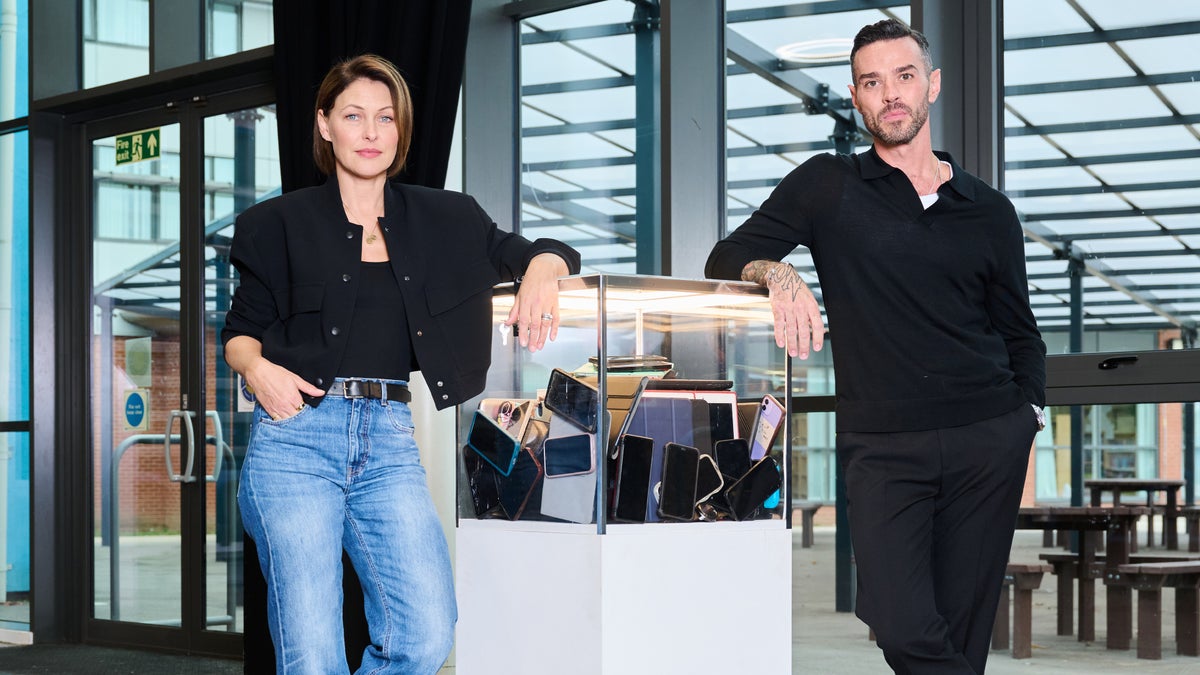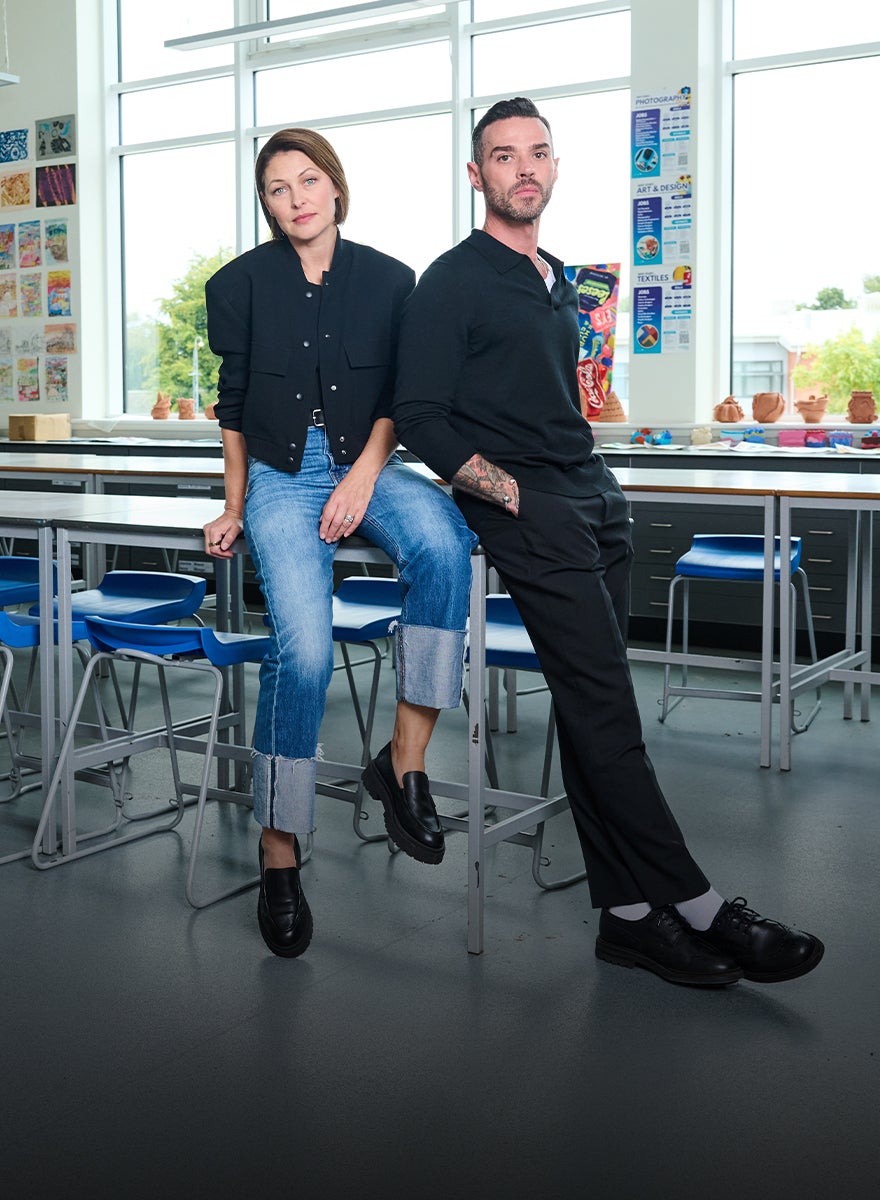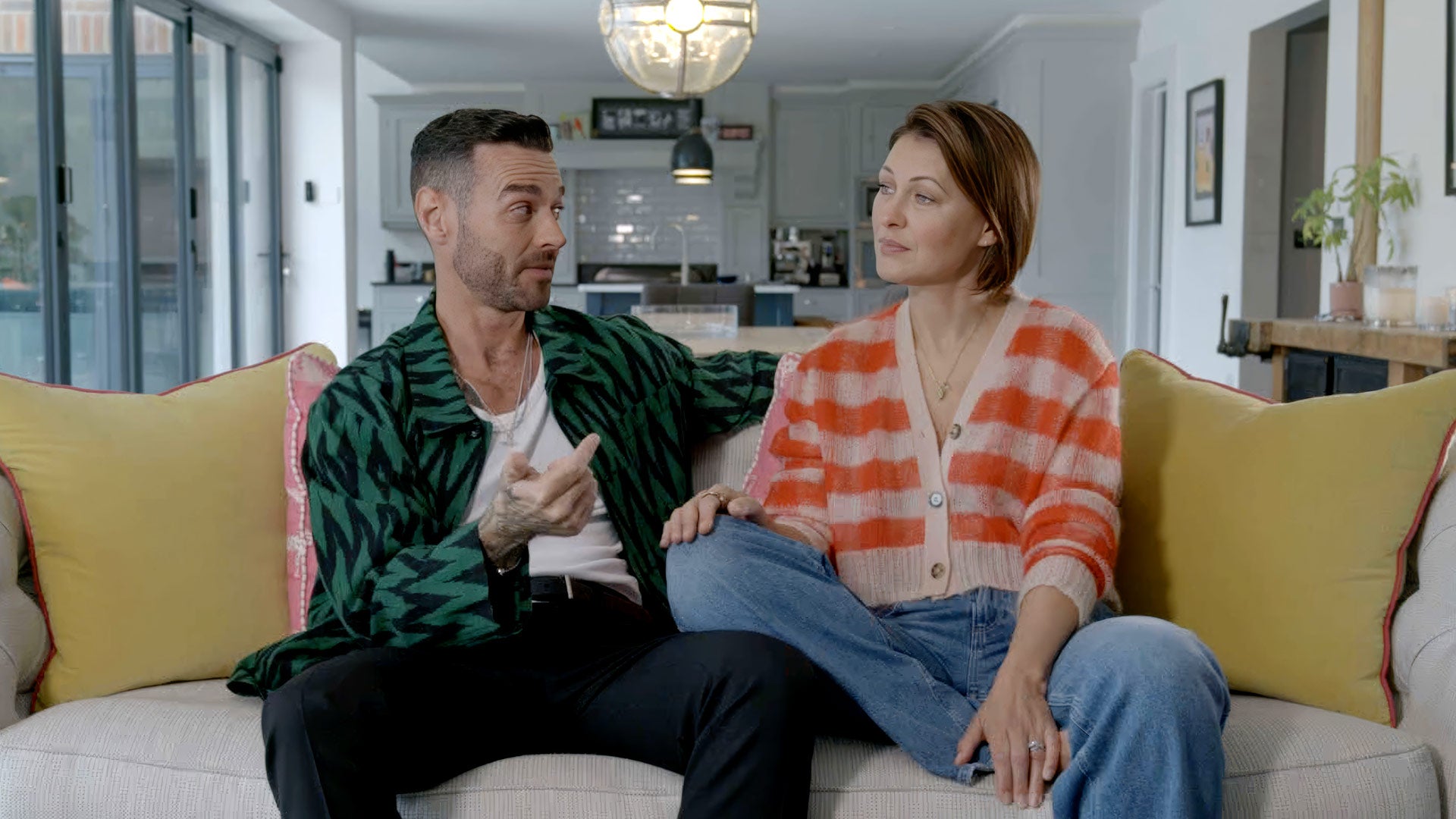
TV presenters, and married couple, Emma and Matt Willis have opened up about the driving force behind their involvement with the new Channel 4 documentary Swiped: The School That Banned Smartphones.
The two-part documentary shines a light on the impact smartphones have on children’s behaviour with a landmark social experiment, where 30 Year 8 pupils from The Stanway School in Colchester are challenged to give up their phones and iPads for 21 days, and are monitored by researchers from the University of York.
Matt and Emma revealed that their primary motivation to get involved with the programme and join in with the social experiment was to learn more about the digital world that their kids – Isabelle, 15, Ace, 13, and Trixie, eight – are absorbed in to help keep them safe.
Speaking at a panel discussion on Tuesday, concerned mum and broadcaster Emma, 48, said: “I am such a technophobe, so it felt like the perfect opportunity for me to learn about this world.
“None of us grew up with this, but they are, so my responsibility as a parent is to learn about the world that they are living in, because that is the only way I can help them navigate it.
“How are we meant to just let them have that in their hands and sail away with it when their brains aren’t even fully formed.
“I thought this will be the deepest dive and best education I can have and therefore, hopefully, I can help them.”
Self-confessed phone addict Matt, 41, also hopes that putting a spotlight on this topic will help other parents.
“Every parent is going through this exact thing, and no one knows what to do,” said Matt. “And it’s like we almost really want someone to tell us what to do.”
Being involved in this documentary has given the Busted bassist a whole new outlook on not just social media, but smartphones themselves.
“There are so many things that shocked me that I hadn’t thought about with a smartphone, because I thought it was just social media,” reflected Matt. “Social media gets a bad rep and you kind of hear about that, and you’re like, ‘that’s bad’ – but even having that device and a search engine is worrying because you can get an answer which is not necessarily true or the right thing.
“And the stuff about porn, which we get into a lot more in episode two, is absolutely shocking and terrifying for kids as well.”
Within the programme, young children and families share some heartbreaking stories about issues surrounding smartphones such as anxiety, online hate and suicide.

“It is so brave of the parents and the families to come forward with those stories, but they are really important to see,” said Matt. “I think as parents we can kind of go ‘Oh our kids won’t see that or search that – our kids are good kids’, but it’s not a choice.
“If you have this in your pocket, there is a very good chance you’re going to get sent something which is going to alter the trajectory of your life.
“Pretty much every kid we talked to had a story about seeing something. And all it takes is one kid seeing something that hits them in a certain way.”
After uncovering some of the shocking dangers around smartphones, the musician now thinks they are too unsafe for young children.
“I cannot see any safe way of having this in a child’s pocket – and I didn’t go into this experiment thinking that,” said Matt. “I thought we would just need age regulations on social media or something, but the more we go through this process, I cannot see any safe way or logical way for a kid to have a smartphone.”
The husband and wife duo have experienced the disruptive impact that social media and smartphones can have on family dynamics firsthand. For example, when they first allowed their oldest, Isabelle, to have Snapchat aged 14.

“Those snap scores and streaks are such a big thing, and I saw such a change in that relationship because of this debate,” reflected the dad-of-three. “She had a smartphone before, but it wasn’t the same as soon as Snapchat was involved. It became an obsession. It was really hard.”
The couple also interviewed the Secretary of State for Science, Innovation and Technology, Peter Kyle for the documentary, and he said something (that didn’t make the final cut) that struck a chord with Emma.
“When we sat down, he said that chair you sat on was tested before you could buy it, and the mug you’re drinking out of was tested before you could buy it – but social media was just given to the world or created and wasn’t tested. And now we are learning the implications of something that hasn’t been tested,” shared Emma.
“So, rather than keep going down that road, why don’t we just stop, maybe reverse and take a different turning so that we can make it safe for kids to be a part of it.”







